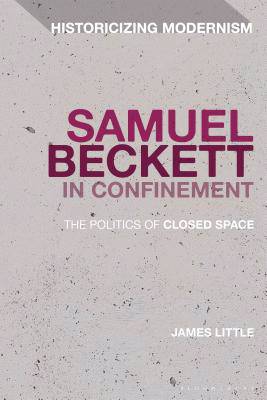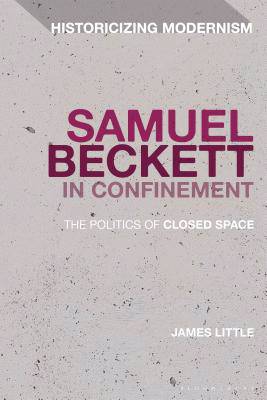
- Afhalen na 1 uur in een winkel met voorraad
- Gratis thuislevering in België vanaf € 30
- Ruim aanbod met 7 miljoen producten
- Afhalen na 1 uur in een winkel met voorraad
- Gratis thuislevering in België vanaf € 30
- Ruim aanbod met 7 miljoen producten
Omschrijving
Confinement appears repeatedly in Samuel Beckett's oeuvre - from the asylums central to Murphy and Watt to the images of confinement that shape plays such as Waiting for Godot and Endgame. Drawing on spatial theory and new archival research, Beckett in Confinement explores these recurring concepts of closed space to cast new light on the ethical and political dimensions of Beckett's work. Covering the full range of Beckett's writing career, including two plays he completed for prisoners, Catastrophe and the unpublished 'Mongrel Mime', the book shows how this engagement with the ethics of representing prisons and asylums stands at the heart of Beckett's poetics.
"James Little's Beckett in Confinement offers a brilliant analysis of the politics behind Beckett's production of closed space, both as a writer and as a director. It carefully examines the move from writing about closed space to creating an art of confinement. To argue that Beckett's use of confined space is central to the political dynamics of his works, James Little also superbly employs genetic criticism to open up the confined space of the published text and bring highly relevant draft materials back into the critical conversation."Dirk Van Hulle, Professor of Bibliography and Modern Book History, University of Oxford, UK "The many characters Beckett invented share one characteristic: they are all imprisoned or trapped in some way, no matter where they are. Samuel Beckett in Confinement: The Politics of Closed Space draws on untapped riches from Beckett's correspondence and the archives to reconsider the obsession with entrapment, coercion and detention central to Beckett's varied oeuvre. In this exciting and illuminating analysis, James Little offers a fresh and original reading of the work's ethical and political dimensions, and shows us why we need to stop thinking about confinement as a metaphysical metaphor."
Emilie Morin, Professor of Modern Literature, University of York, UK "Little breaks new ground in this expansive investigation to explore how confinement is a central component of Beckett's political aesthetics ... The reader is guided by a crisp and easy style of writing as Little demonstrates a command of sources which are broad in scope, but negotiated to form a compelling and impactful study."
Journal of Beckett Studies
Specificaties
Betrokkenen
- Auteur(s):
- Uitgeverij:
Inhoud
- Aantal bladzijden:
- 256
- Taal:
- Engels
- Reeks:
Eigenschappen
- Productcode (EAN):
- 9781350112322
- Verschijningsdatum:
- 14/05/2020
- Uitvoering:
- Hardcover
- Formaat:
- Genaaid
- Afmetingen:
- 152 mm x 236 mm
- Gewicht:
- 725 g

Alleen bij Standaard Boekhandel
Beoordelingen
We publiceren alleen reviews die voldoen aan de voorwaarden voor reviews. Bekijk onze voorwaarden voor reviews.











